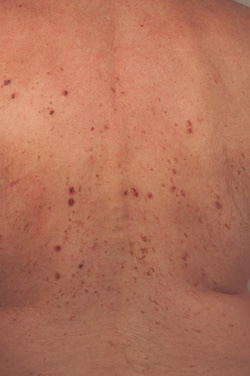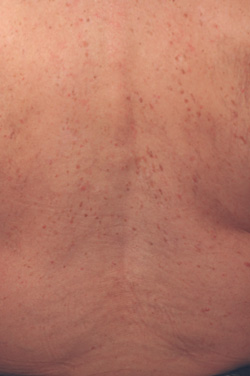Unlocking Sunscreen Health: Daily Defense for Youthful Skin
When you think of sunscreen, what do you think of ? Sticky, greasy and uncomfortable, but a necessary evil? Do you think about skin cancer or sunburn prevention? Do you think about the beach, pool or vacation? If so, you’re like most of us. We often think about sunscreen for “special occasions” where we have extended exposure to the sun. But do you realize that every day, even if you work indoors. You are exposing your skin to harmful UV rays that can damage and age it? Although you may not have thought of sunscreen as a daily necessity to slow the aging process—but we think you should!
Photoaging is the term that we use for this slow, long-term type of sun damage that occurs over many years without sunscreen. It can make your skin look rough with an uneven texture, discolored and even contribute to loose or saggy skin. Of course, it’s the major contributor to the development of fine lines and wrinkling as well.


Photoaging resulting from lack of sunscreen use
Yes, skin cancer is worrisome and should be motivation for you to use sunscreen. Even a very slow accumulation of UV damage over an extended period can cause precancerous changes and skin cancer! The bottom line is that Southern California residents should wear a good, broad-spectrum sunscreen every day to protect their skin.
If you’re thinking it’s too confusing to pick out one that you like and would be willing to wear every day—you might be right! It can be harder than you think to find one that checks all the safety boxes and also feels nice enough to put on every day. The FDA has tried to make the process a bit less confusing by requiring sunscreen manufacturers to be clearer in their labeling of SPF or “sunburn protection factor”. They have also made a public education push to help consumers understand that a higher SPF doesn’t mean a “better” sunscreen. In fact, a product with an SPF of 100 provides no better protection from harmful UV radiation than one with an SPF of 50.
So, now that you know that you don’t need a higher SPF than 50, what else should you know? Surprisingly, a lot! How and when you use your sunscreen matters, so we’ve comprised a tip list here on this page to help you get the most out of your sunscreen! Here it is:
- There is no such thing as “waterproof sunscreen”. ALL sunscreens will come off with prolonged contact with water or sweat. The better term is “water resistant sunscreen”. Stay safe and reapply your sunscreen often if you’re swimming or sweating.
- Don’t be shy with your sunscreen! Apply it generously and use liberal amounts. In short, more is better!
- Under normal conditions, it’s important to reapply sunscreen every two hours when outdoors for extended periods of time. If you’re sweating or swimming, then you need to do it more often, maybe even every hour to stay protected.
- Avoid the 2-in-1 products that are “moisturizers plus sunscreen”. While they may be better than nothing, they really aren’t much better! Look for an actual sunscreen product that is designed for one purpose which is protection from UV rays.
- Remember that you need to apply a sunscreen to all sun-exposed skin every morning. Even if you “never go outside” you are exposed to UV radiation in your car, walking to and from the office or store, and if your workstation is in the sunlight coming through a window or glass. All these 5 or 10 minute exposures add up to a lot of sun over your lifetime!
- Remember to apply to your forearms and the backs of your hands in addition to your face and ears. These areas get a lot of sun too and will show photoaging just as easily (if not more) than your face!
Don’t take your chances! Now that you know more about sunscreen, pick a good one and use it correctly every day to keep your skin looking young and healthy.

